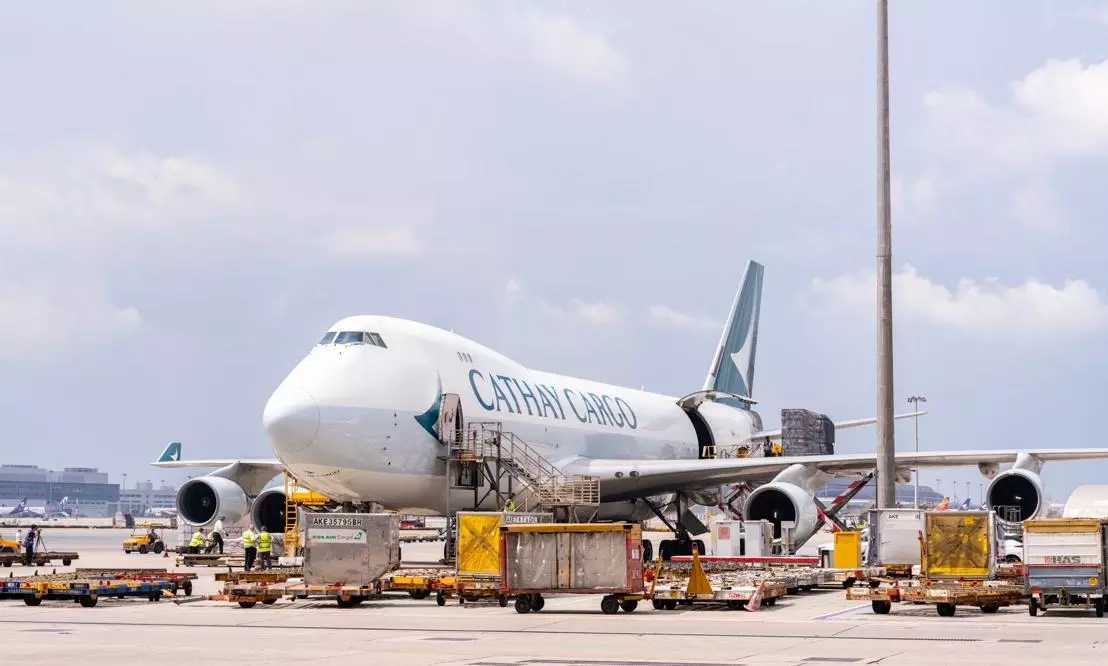Logistic Other

Amplifying Seamless Connectivity in Major Chinese Logistics Hubs

Etihad Cargo, the freight and logistics division of Etihad Airways, and SF Airlines, China’s premier air cargo provider, have recently unveiled a significant capacity expansion as part of their Joint Business Agreement (JBA). This collaboration will establish a streamlined, mutual network, bolstering connections between Abu Dhabi and Chinese logistics powerhouses Shenzhen and Ezhou.
Enhanced Connectivity Between Logistics Hubs
Through the integration of freighter services from both Etihad Cargo and SF Airlines, the JBA delivers a combined total of nine weekly flights to Shenzhen, China’s first international cargo station operating round-the-clock. This setup at Shenzhen Bao’an International Airport allows for swift turnaround times, enhancing the overall customer experience.
Furthermore, the collective number of flights to Ezhou, recognized as Asia’s first dedicated cargo airport, has increased to seven per week. Located in the Hubei Province, Ezhou Huahu Airport provides unmatched domestic reach and ever-increasing international connectivity.
Collaborative Business Agreement
The agreement was formalized in June by Antonoaldo Neves, CEO of Etihad Airways, and Li Sheng, Chairman of SF Airlines. Operating on a metal-neutral basis, both airlines will jointly market and combine their airfreight services, align service standards, and establish coordinated pricing.
The collaboration is aimed at supporting burgeoning markets like cross-border e-commerce and pharmaceuticals. The alignment of Etihad Cargo’s SecureTech and PharmaLife solutions with SF Airlines’ robust domestic distribution network facilitates the smooth transport of electronics, time-critical goods, and precision equipment across Asia, the Middle East, and further afield.
The consolidated Shenzhen and Ezhou figures include additional weekly flights recently introduced by Etihad Cargo as part of their winter 2025 schedule.
Driving Global Trade Opportunities
Stanislas Brun, Chief Cargo Officer of Etihad Airways, expressed, “Shenzhen and Ezhou are among China’s most dynamic and effective logistics hubs. Our joint business agreement connects our customers with China’s main distribution hub and an expanded global network. In strengthening our partnership with SF Airlines, we anticipate facilitating new trade opportunities and connecting more businesses and communities beyond borders.”
Echoing these sentiments, Li Sheng, Chairman of SF Airlines, stated, “This strategic collaboration is projected to yield substantial business efficiencies, support revenue growth, and enhance customer satisfaction. By synergizing their strengths, Etihad Airways and SF Airlines are poised to deliver top-tier air cargo solutions that meet the dynamic needs of the global logistics industry.”
This partnership aims at establishing stronger global connections to facilitate the movement of goods and ideas more effortlessly, thereby empowering the people and businesses behind each shipment. Both Etihad Cargo and SF Airlines are setting a new benchmark for international trade by promoting growth through collaboration and innovative ways to transport cargo globally.
Questions & Answers
What does the Joint Business Agreement between Etihad Cargo and SF Airlines entail?
The agreement facilitates the integration of freighter services from both airlines, aligns service standards, and establishes coordinated pricing. It also involves a significant increase in the weekly flights to Chinese logistics hubs, Shenzhen and Ezhou.
How does the partnership impact burgeoning markets?
The collaboration supports growing markets like cross-border e-commerce and pharmaceuticals. The alignment of Etihad Cargo’s SecureTech and PharmaLife solutions with SF Airlines’ robust domestic distribution network enables seamless transport of goods across Asia, the Middle East, and beyond.
What are the long-term goals of this collaboration?
The long-term objectives of this strategic collaboration are to yield significant business efficiencies, support revenue growth, enhance customer satisfaction, and establish stronger global connections. It aims to facilitate new trade opportunities and connect more businesses and communities globally.












